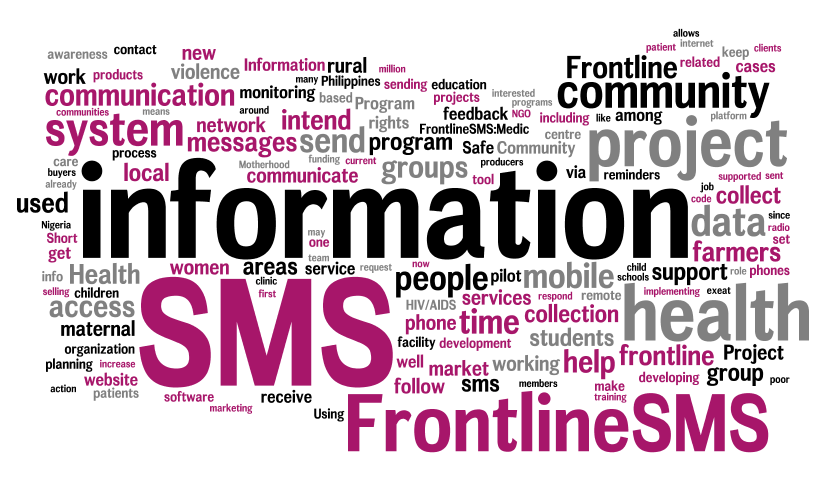Earlier this month, Amy and Peter from the FrontlineSMS:Radio team based in London, UK made the short trip north to Cambridge to meet the University’s researchers at the Centre of Governance and Human Rights (CGHR). In this post, we share an update on the trial of FrontlineSMS:Radio and research being carried out with Breeze FM, Zambia and Radio Buddu, Uganda.

In 2012, the Cambridge Centre of Governance and Human Rights (CGHR), as part of its project on 'New communications technologies and citizen-led governance in Africa’ (2010-12), is piloting Africa’s Voices, a collaborative platform aimed at enhancing debate, discussion and knowledge on contemporary issues of public interest in Africa. Designed as an African-wide research initiative, Africa's Voices is aimed at analysing citizens' opinions on a wide range of issues as radio stations all over the continent ask a monthly question and audiences are invited to reply via SMS. Stations are then provided with comparative analysis and can create innovative broadcasts that put their communities’ views in an pan-African perspective. Researchers have recently visited Uganda and Zambia working with local radio stations who are getting ready to ask audience questions. This research will lead to comparative findings on how SMS is used by listeners to discuss issues which affect their community.
Sharath Srinivasan who has been working with presenters in the studio at Breeze FM, Zambia reported that one 45 minute show - based on the role of the police and community in arresting criminal suspects - attracted 60 incoming SMS's and generated a very lively debate. The DJs have been testing FrontlineSMS:Radio’s "shows" function for the first time. Shows are designed to be a space where different presenters can organize their own area within the FrontlineSMS:Radio system. By clicking an “on-air” button, all SMS received from that moment on are fed into the current show, making it easier for DJs to organize messages relevant to them. DJs can click "off-air" when they finish so messages are filtered to the main inbox or another DJ's show. With the awareness that many stations have volunteer staff coming and going, this FrontlineSMS:Radio function is designed to be simple and not restricted to user names or passwords.
Meanwhile, Florence Brisset-Foucault has been at Radio Buddu in Masaka, Uganda, where they receive around 30 text messages per day and are trying to develop their use of SMS. The most popular topics for interaction from the audience seems to be shows on domestic and personal problems. Presenters are enthusiastic about the future for FrontlineSMS:Radio software especially since they previously relied on a premium rate number. A shift to using FrontlineSMS means they can use a local number, reducing the cost for listeners to text the station by 50% or more. Previously people would pay 220 or 250 sh to text the station but now it will be 110 sh or 50 sh if on same network. (1 £ = 3900 sh).
"FrontlineSMS:Radio makes it much cheaper for audiences to interact with us and we hope it will increase access to our debates," Pascal, Radio Buddu's head of news told Florence. Pascal is confident this will enlarge the number of people able to contact the station and share their views.
Another new FrontlineSMS:Radio function is polls, which allows stations to ask listeners to respond to a question using a keyword followed by a letter denominating their answer. When messages are received, FrontlineSMS generates a visual representation in a graph and introduces a system to cope with misspelt keywords through a manual override function. Umar, the programme manager is very excited about the polling activity which he thinks will have great potential particularly in Radio Buddu’s development and health programmes. With a smile, Umar observed that "the polling function will definitely help those of us who are bad at maths, as it displays the results automatically! It will make things easier to announce the results live on air".
To find out more about Africa's Voices see their website or check them out on Facebook.
You can also hear Hassan Korona of Radio Gbath, Sierra Leone's promotion audio for Africa's Voices here.
For more photos from Radio Buddu see the online album.





